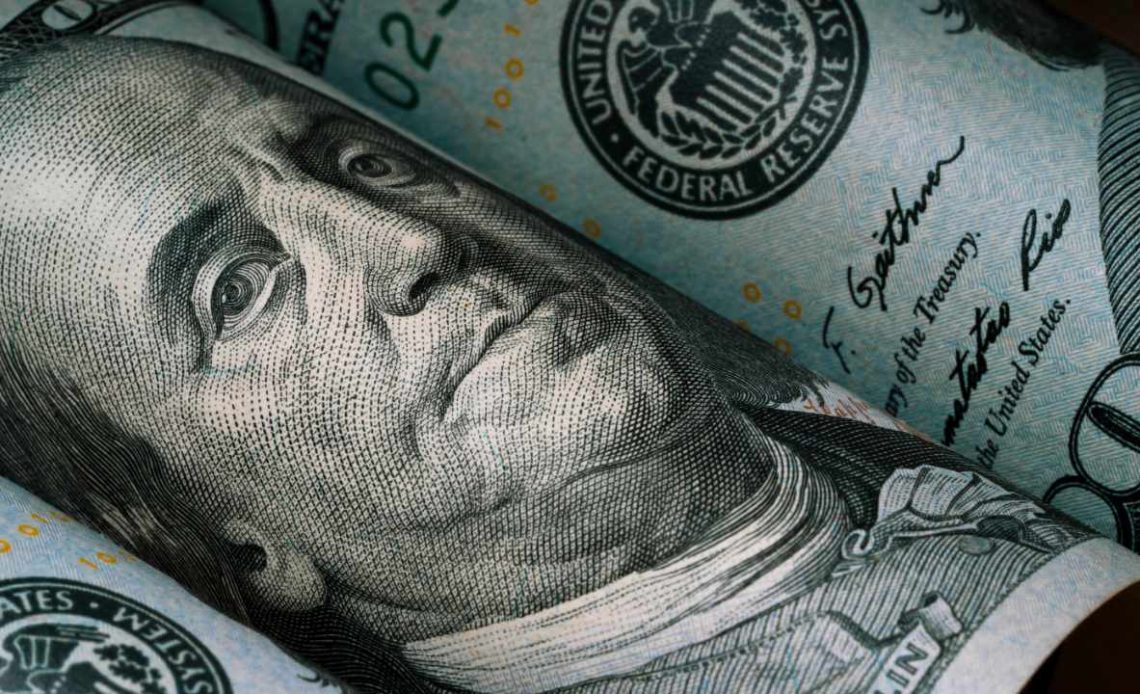
A Federal Reserve governor has addressed crypto’s impact on the U.S. dollar’s dominance. Additionally, he expressed reservations about the need for a U.S. central bank digital currency (CBDC) and stated his opposition to banks holding bitcoin exchange-traded funds (ETFs) as their primary asset.
Fed Governor on Crypto, CBDC, and the U.S. Dollar
Federal Reserve Governor Christopher J. Waller addressed a variety of topics at the “Climate, Currency, and Central Banking” conference sponsored by the Global Interdependence Center and the University of the Bahamas on Thursday. Among the subjects he discussed were the potential impact of cryptocurrency on the U.S. dollar’s dominance, the Fed’s potential issuance of a central bank digital currency (CBDC), and his view on recently approved spot bitcoin ETFs.
Citing concerns raised by some regarding the U.S. dollar losing its dominance, Waller explained that these concerns stemmed from various factors, including sanctions against Russia, U.S. political dysfunction, the rise of digital assets, China’s efforts to promote its currency, the yuan, and the potential for “geoeconomic fragmentation” that could be a disadvantage for the dollar’s role as the world’s reserve currency.
Addressing crypto’s potential to reduce the dominance of the USD, the Fed governor said: “A shifting payments landscape — for example, the rapid growth of digital currencies — could reduce reliance on the U.S. dollar.” He noted:
People often conjecture that cryptocurrencies like bitcoin may replace the U.S. dollar as the world’s reserve currency.
However, he then explained why he does not see the U.S. dollar’s dominance being at risk. “Most trading in decentralized finance (defi) involve trades using stablecoins, which link their value one-for-one to the U.S. dollar,” Waller stated, adding that “about 99% of stablecoin market capitalization is linked to the U.S. dollar, meaning that crypto-assets are de facto traded in U.S. dollars.” The Fed governor concluded that “it is likely that any expansion of trading in the defi world will simply strengthen the dominant role of the dollar.”
Overall, he described: “I do not expect to see the U.S. dollar lose its status as the world’s reserve currency anytime soon, nor even see a significant decline in its primacy in trade and finance. Recent developments that some have warned could threaten that status have, if anything, strengthened it, at least so far.”
During the Q&A segment of the conference, Waller was asked about the Fed’s work on a central bank digital currency. Reiterating his stance, the Fed governor questioned the need for a U.S. CBDC, asking: “What is the major market failure in the payment system that requires a CBDC and only a CBDC to solve?” He emphasized the absence of any convincing answer to his question, further solidifying his position against the Fed creating a digital dollar.
Responding to a question about whether his view on crypto has changed now that the U.S. Securities and Exchange Commission (SEC) has approved spot bitcoin ETFs, Waller reiterated his position from a year ago that “crypto, bitcoin, ethereum, or dogecoin, or whatever you want to call them” are like baseball cards to him. He stressed their lack of inherent value, suggesting people buy and hold them hoping someone else will pay more later. The Fed governor opined:
I don’t really care if people want to have an ETF trading baseball cards. I don’t care if they want to have an ETF trading crypto. What I don’t necessarily want is banks or some pension portfolios holding a lot of this as the main asset in their portfolio for the typical safety and soundness reasons.
Source: Bitcoin



